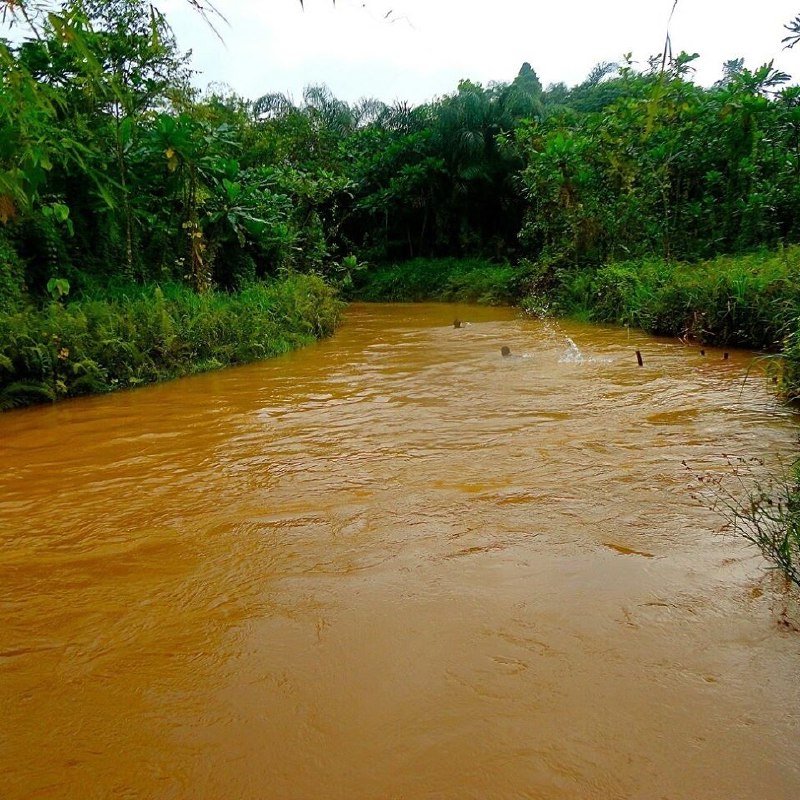For travellers on the Owerri-Onitsha expressway, Njaba is that stretch of water body which slashes through the belly of Awo-Omamma town in Oru East Local Government Area of Imo State.
Some would also remember it as that river which allegedly defied all efforts by Julius Berger to build a bridge across it until some sacrifices (human, some say) were made to pacify the river god.
For travellers on the Orlu-Owerri road in Imo State, on the other hand, it is that river which forms the borderline between Umuaka and Okwudo communities in Njaba LGA. While these descriptions are not totally wrong, the truth, however, is that Njaba is bigger than what people see or say.
This river has its source in Isunjaba in the present day Isu LGA of Imo State. According to certain oral traditions, the name Isunjaba is a mispronunciation of the original Isi Njaba (the source of the river) by the European colonial masters who came to the town in the early years of the 20th century.
Another version of the traditions of origin of the people, however, says that Njaba is also the birth-place of Isu njaba people.

According to this version which gives the people autochthonous status, Chukwu Abiama (the Supreme God) created the River, and out of the river emerged a man named Njaba. God then gave Njaba a wife named Lolo. The union of Njaba and Lolo produced a male child whom the couple called Isu; hence, Isu Njaba (Isu, the son of Njaba).
Originating from a certain rock in the Isunjaba-Amucha valley, Njaba River flows from there, circuitous like a snake, through Ubah village in Isunjaba (where it is called Iyi Ubah), stretches further through Ekwe until it bursts out at the borderline between Umuaka and Okwudo along Orlu-Owerri road, continues through tiny villages until it explodes again at Awo-Omamma along Onitsha-Owerri road.
There, it crosses the road and flows endlessly through Awa community in Oguta L.G.A. until it merges with Urashi River in Oguta to form one water body which finally empties itself into the Niger River from where it continues to only-God-knows-where.
this river is also a deity. Its totem is Eke Njaba (the sacred python). Eke Njaba is a welcome visitor in the home of every Isu man, and it is usually treated with the warmest hospitality. Sometimes sacrifices are made to herald its visit.
READ ALSO: Four Towns That Worship Python In Nigeria.
At other times eggs and chicks are offered to it because by so doing, it is believed that the supplicant is placing himself in a position to obtain favour from the deity. Tradition forbids anyone, indigene and visitor alike, to raise a hand against it or to kill it. Anyone who violates the tradition, willingly or accidentally, must accord the snake a befitting burial surpassing that of a titled man to cleanse the land he has polluted. The alternative punishment is ostracism.
However, much of the above practices have been overtaken by Christianity. Some Christians, in their overzealousness to eradicate all forms of what they tagged heathenism, began to kill Eke Njaba with reckless abandon.
This gave rise to a popular chant among the people: “Eke gbalaga, ndi choochi abiala igbu gi”, which translates as “Eke flee for your life, the Christians are coming to kill you”. And, in order to save its species from extinction, and as if responding to the call to alert by the people, Eke Njaba has retreated far into the forests along the Njaba valley such that today, it is very rarely seen at all, let alone within the vicinity of human habitation.
Follow Us On Facebook.
Post Disclaimer
The opinions, beliefs and viewpoints expressed by the author and forum participants on this website do not necessarily reflect the opinions, beliefs and viewpoints of Anaedo Online or official policies of the Anaedo Online.

